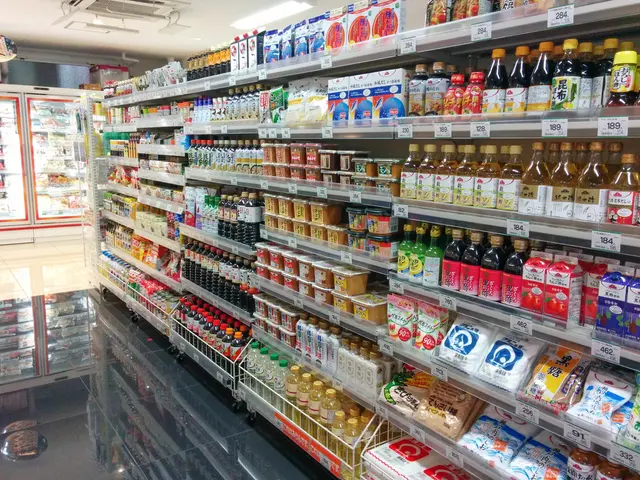Young adults from the Millennial generation are offering guidance to the upcoming generation, Gen Z, as they prepare for their first potential economic downturn.
Millennials are giving Gen Z a reality check on TikTok, sharing stories and tips from the Great Recession to help the young generation prepare for potential economic struggles.
Many millennials experienced the Great Recession as young adults and are still feeling the aftermath, battling student debt and housing affordability issues. Now, they're using TikTok to share their wisdom with Gen Z, posting preparation tips and no-buy lists to ease the anxiety of young people who could enter their first major recession as adults.
Donald Trump's inconsistent policy changes and the global trade war have people warning about dire consequences for the US economy, from Federal Reserve Chair Jerome Powell to Goldman Sachs analysts. The administration's tit-for-tat escalation in the trade war could lead to a recession for both the US and the world this year, JPMorgan said this month.
This all comes after a string of unprecedented events for young people: people in their early 20s are earning less and have more debt. The Covid-19 pandemic and onslaught of inflation have added to their financial woes.
So, while the United States might not be in a recession right now, its youngest working adults are still anxious - and seeking advice from their older peers.
Sasha Whitney, 37, noticed Gen Z users on TikTok shared similar feelings over an impending recession: "downtrodden, frustrated, very bleak and hopeless about the future." It's a stark contrast to Whitney's college graduation in 2009, during the Great Recession, before social media became as pervasive.
"When I talked to some of my millennial friends, they were like, 'Yeah, we were broke. We were struggling,'" Whitney said. "However, we weren't trying to keep up with the Joneses. You weren't trying to portray a lifestyle for social media."
Other millennials joked on social media about the sense of community they had during the recession, sounding nostalgic for the days of cheaper liquor, wearing business casual, and endless replays of feel-good recession pop.
"If you want to know how we survived, yeah we blacked out," one millennial user quipped on TikTok.
Millennials did share their real financial struggles: working retail immediately out of college, living at home for a bit, and leaving only $20 a week for groceries. They used TikTok videos to walk viewers through recession tips like taking whatever job you can get, living below your means, and deleting payment platforms like Klarna and After Pay. Other videos offered recession preparation guides, such as having an emergency savings fund and updated resumes.
"If I can give somebody advice, especially younger folks, that's what I'm going to do," Whitney said.
Cutting Back
Many TikTokers are planning to do one thing: limit their spending. For Imani Smith, a 29-year-old in Dallas, that means password-sharing subscriptions with friends and cutting back on going out to eat. Beauty maintenance is also a high cost, so she buys press-on nails from Amazon instead of going to the salon. Salon owners are reporting an increase in requests for "recession blonde," cheaper, more low-maintenance hairstyles.
And despite the famous lipstick index - the theory that small "treat yourself" purchases uptick during economic downturns - social media users have pledged to cut out small purchases like expensive lip balms and candles.
"I want to (save) and build a practice of doing it before I have to do it out of basic necessity," Smith said.
Doubts and Uncertainty
Despite the advice from millennials to let go and live, as all the great music of the mid-2000s encouraged, anxiety still persists among many young people.
After speaking with people who lived through 2008, Smith expressed her worries for the job market right now.
"They might've lost their jobs, but the cost of living was so low back then that they could have picked up something retail and held themselves afloat for a while," Smith said.
For many young people, their anxiety goes back to the Covid-19 pandemic, which triggered the shortest recession in US history.
"It put me in the mindset that I need to be prepared for anything," Smith said. "Because none of us could have anticipated Covid-19 and the lasting effects that had."
- Millennials are emphasizing the importance of personal finance and saving to Gen Z on TikTok, sharing tips and strategies for navigating potential economic struggles.
- JPMorgan has recommended that the US economy could face dire consequences due to Trump's inconsistent policy changes and the global trade war, potentially leading to a recession.
- Careers, housing affordability, and student debt are among the primary concerns for millennials who experienced the Great Recession as young adults.
- In an effort to prepare for potential economic struggles, many Gen Z TikTok users are investing in education and self-development, focusing on skills training and career development.
- Millennials are recommending budgeting, debt management, and the creation of an emergency savings fund as essential habits for personal finance in uncertain economic times.
- Many young people are turning to entertainment, such as music and social media, as a means of coping with anxiety and uncertainty about their futures in the housing-market and job-search.
- By sharing personal stories of living below their means during past recessions, millennials hope to provide a sense of community and support to younger generations.
- Career development and mindfulness practices like goal-setting and productivity techniques are being highlighted by millennials as valuable tools for personal growth and coping during difficult financial times.
- In the midst of the advice from older peers, young people express doubts about their ability to secure stable employment in a potential recession, citing the high cost of living and reduced job opportunities.
- As a result of concerns about a potential recession, many TikTok users are cutting back on non-essential spending and focusing on saving for emergencies rather than relying on so-called “treat yourself” purchases, like luxury candles or products.
- To save money, some young people are opting for cheaper alternatives like press-on nails instead of salon visits, and password-sharing memberships.
- Despite the advice from millennials to embrace the frugality of difficult financial times, many young people still feel anxious about their future in the real-estate and job markets, with memories of the Covid-19 pandemic fresh in their minds.










